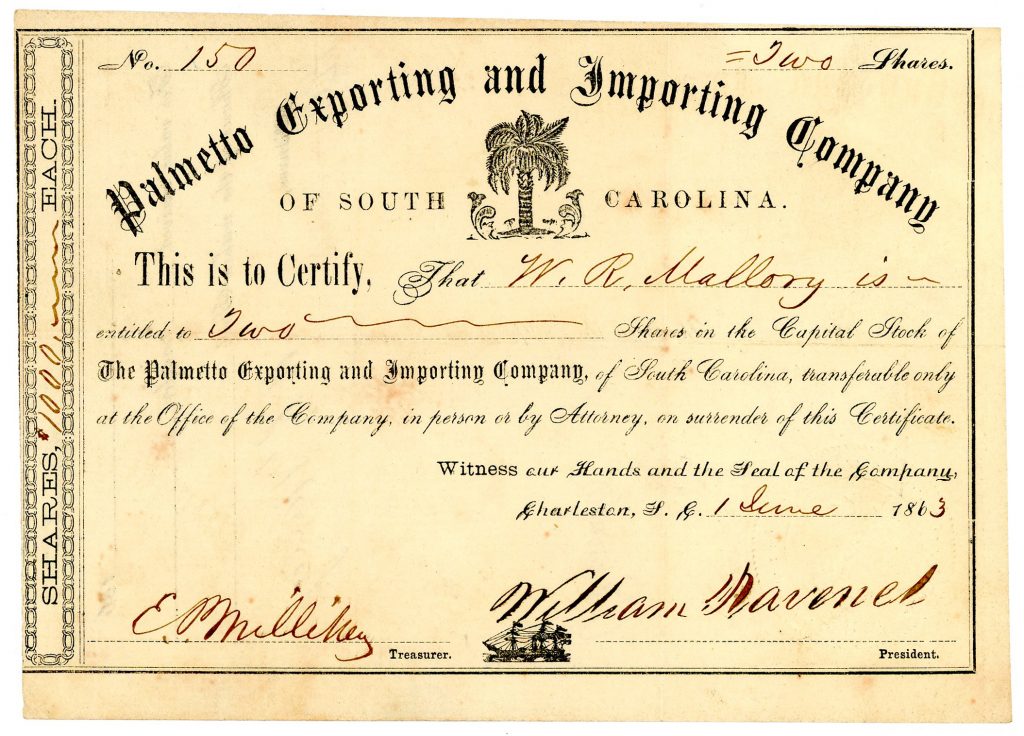The stock certificate seen here was from the Palmetto Exporting and Importing Company of Charleston, South Carolina. Why on earth would Mystic Seaport Museum be interested in such a certificate? The initial reason that caught our eye was the name of the person, W.R. Mallory, who paid two thousand dollars for two shares in the company. The Mallory family has been very involved with Mystic Seaport Museum since the 1930’s and at least four family members have held positions on the Museum’s Board of Directors. However, the more interesting aspect of the stock certificate in a maritime sense is that it represents shares in a company that ran blockade runners for the Confederacy during the Civil War.

William Ravenel, listed as the President of the company in the lower right-hand corner, also held shares and board positions in at least one other blockade running company, the Importing and Exporting Company of South Carolina. It was one of the Palmetto Company’s boats, however, that encouraged blockade runners to once again use Charleston as a port of entry after most had abandoned it for Wilmington, North Carolina after the blockade of Charleston. While many blockade running boas were sleek, fast English-built steamers, Ravenel bought an old Charleston dredge, the GENERAL MOULTRIE, and in 1864 managed to send her through the blockade to Nassau in the Bahamas with a profitable cargo of cotton. As a matter-of-fact, the Palmetto Exporting and Importing Company (and the Exporting and Importing Company of South Carolina as well) was one of the few such companies to turn a profit. While Palmetto did not lose any money for its investors, the EICSC declared dividends totaling nearly 200 British Pounds and 9,000 Confederate dollars to investors by the time the company liquidated all its assets after the war.
Palmetto ran at least one other steamer through the blockade the same year as the GENERAL MOULTRIE. The GENRAL CLINCH made the same run to Nassau at the end of the year and both boats stayed there for the remainder of the war.
Much of the information here is taken from Stephen R. Wise’s Lifeline of the Confederacy: Blockade Running during the Civil War (Columbia: University of South Carolina Press, 1989).
Papers pertaining to William Ravenel and his business interests are held at the South Carolina Historical Society.